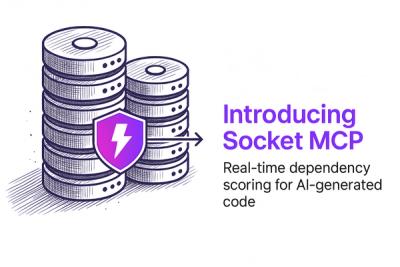
Product
Secure Your AI-Generated Code with Socket MCP
Socket MCP brings real-time security checks to AI-generated code, helping developers catch risky dependencies before they enter the codebase.
relative-microtime
Advanced tools
Get the number of microseconds elapsed since January 1, 1970 00:00:00 UTC without fear of clock drift
This module returns the number of microseconds elapsed since January 1, 1970 00:00:00 UTC.
Note: The returned number of microseconds are locked relative to a
specific time and is therefore not subject to clock drift. This is
contrary to how Date.now() operates, whos return value (in
milliseconds) is always based on the system clock.
npm install relative-microtime --save
const timer = require('relative-microtime')()
const milli = Date.now()
const micro = timer()
console.log(milli) // 1537446194859
console.log(micro) // 1537446194859132
timer = microtime()Sync the microtime clock to the UTC wall clock.
Returns a timer function synced with the UTC time when microtime()
was called. Any clock drift that happens after the call to microtime()
will not influence the returned timer.
timer()Returns a Number representing the microseconds elapsed since the UNIX
epoch.
FAQs
Get the number of microseconds elapsed since January 1, 1970 00:00:00 UTC without fear of clock drift
The npm package relative-microtime receives a total of 351,601 weekly downloads. As such, relative-microtime popularity was classified as popular.
We found that relative-microtime demonstrated a not healthy version release cadence and project activity because the last version was released a year ago. It has 1 open source maintainer collaborating on the project.
Did you know?

Socket for GitHub automatically highlights issues in each pull request and monitors the health of all your open source dependencies. Discover the contents of your packages and block harmful activity before you install or update your dependencies.

Product
Socket MCP brings real-time security checks to AI-generated code, helping developers catch risky dependencies before they enter the codebase.

Security News
As vulnerability data bottlenecks grow, the federal government is formally investigating NIST’s handling of the National Vulnerability Database.

Research
Security News
Socket’s Threat Research Team has uncovered 60 npm packages using post-install scripts to silently exfiltrate hostnames, IP addresses, DNS servers, and user directories to a Discord-controlled endpoint.